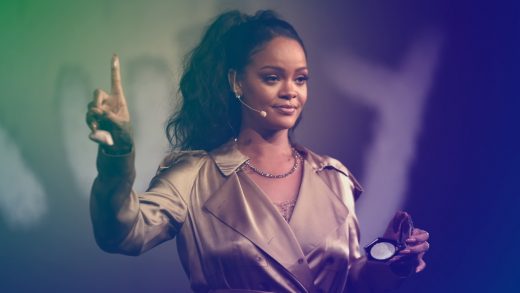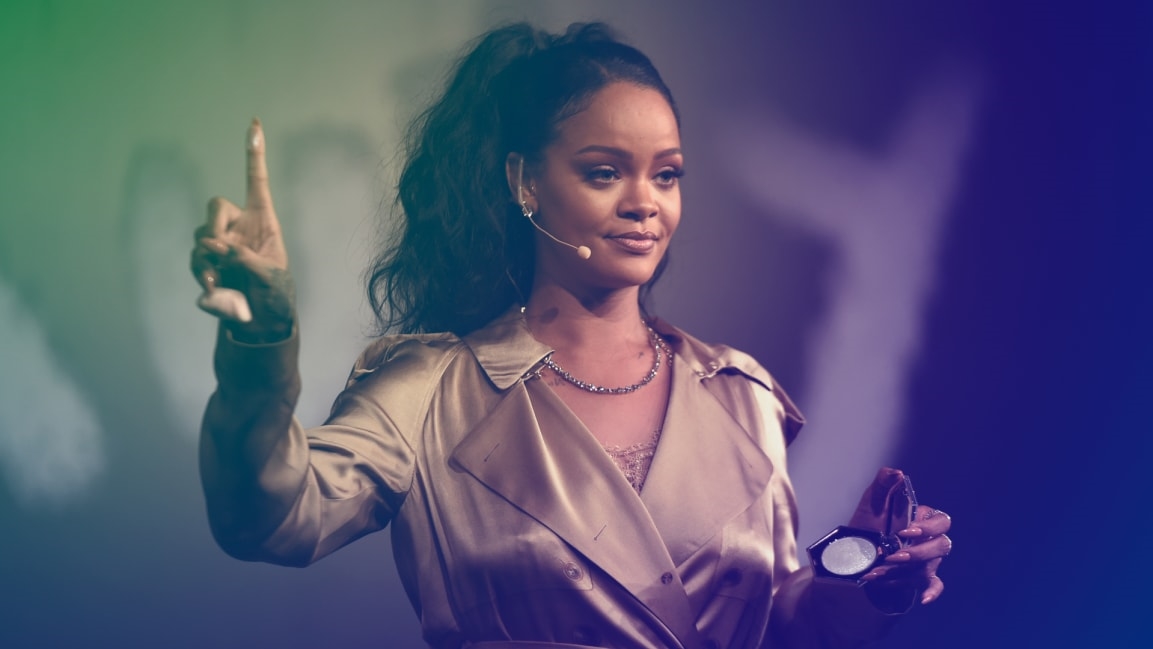Rihanna’s new brand will sit alongside Dior, Givenchy, and Celine
Rihanna Robyn Fenty–better known as simply Rihanna–is finally getting the recognition she deserves as a designer. Today, LVMH Moët Hennessy Louis Vuitton, the world’s largest luxury group, which is worth $14 billion, announced that Rihanna will create a new brand that will sit within its stable alongside heritage brands like Dior, Celine, and Givenchy. The 31-year-old first came to the world’s attention as a singer, but over the last few years, she’s launched her own inclusive fashion label called Fenty, as well as a makeup brand, Fenty Beauty. We can expect to see the first looks from her LVMH-incubated brand, currently dubbed Fenty Maison, later in May.
It’s a groundbreaking moment for all parties involved. This is the first new brand that LVMH is developing internally since it launched Christian Lacroix in 1987. Rihanna, as the only woman of color running a brand within LVMH, will bring a new energy to a conglomerate known for its staid, traditional approach to luxury fashion. As Vanessa Friedman points out in her New York Times column, it signals that LVMH understands that “growth in the luxury industry may no longer come just from reinventing old heritage names.” Instead, it might come by embracing diverse young designers who may not be classically trained and have built strong relationships with their audiences through social media.
Black designers are rare in the world of high fashion. Virgil Abloh–also a multi-hyphenate creator who has his own fashion label, but also designs Rimowa suitcases, Evian water bottles, and Ikea furniture–made waves when he was tapped by Louis Vuitton to become the head of menswear last year. As more black designers ascend to the top of luxury houses, there is hope that these brands will be more inclusive with who they bring on staff and the models they send on the runway.
Over the last few months, I’ve written about several racist incidents within the fashion world, from Prada’s blackface trinkets to Dolce and Gabbana’s offensive ads in China. Each time this happens, people often ask why there wasn’t someone at the company who could call out how problematic these decisions were. Hopefully, things are changing for the better.
(16)



